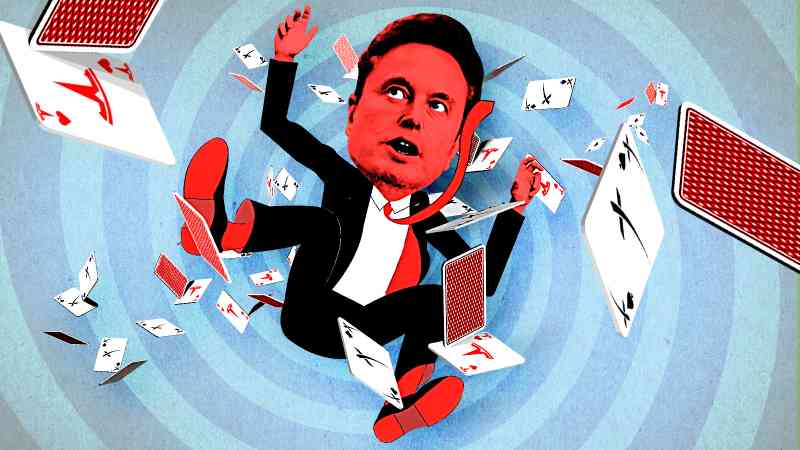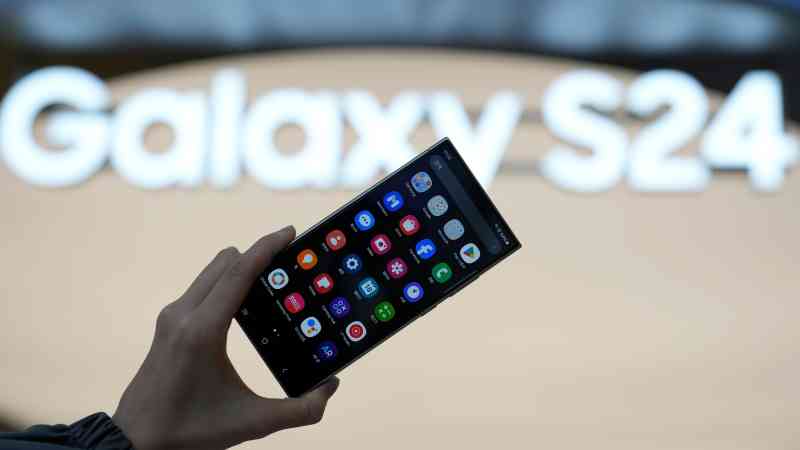Meet the eerie AI clones that can replace you on the web
Dara Ladjevardian missed his grandfather, so he cloned him. The 27-year-old from Texas was in the midst of building his first start-up. It was hard, and he longed for the counsel of his family’s deceased patriarch, a successful industrialist who built two fortunes, the second of them in America after he lost the first in Iran in the 1979 revolution.
So his grandson took a 200-page memoir that Akbar, his grandfather, had produced and fed it into an artificial intelligence (AI) model. The result was a chatbot imbued with these experiences. “I was like, ‘It’d be great if I could talk to my grandpa and learn from him, ask him questions,” Ladjevardian said. “I created a clone of him using that book, and treated it as my own personal mentor.”
Thus, the kernel of his next start-up, Delphi, was born. The San Francisco-based cloning company has created a form of AI that ingests Twitter posts, Google Drive documents, TikTok posts and any other feed to create a text or voice-based clone of anyone who wants one. “Our goal is to incentivise some of the smartest people in the world, or eventually anyone, to scale themselves so that more people can access their knowledge in a personalised way,” Ladjevardian said.
Delphi is part of a generation of AI-powered cloning start-ups that all promise some version of the same idea: spin up a digital twin and “scale” yourself. Whether you are a politician, a time-pressed executive, a social media creator, or an actor looking to make a few extra bucks, powerful AI models can generate a digital likeness able to stand in for you on jobs — that looks and sounds like you and, potentially, can generate a nice bit of income on the side.
Delphi sets a minimum data threshold for generating an accurate avatar, and rates it on a dashboard so that users can see and improve upon it. “When I was raising money [in 2022], people told me I was crazy,” Ladjevardian said. Then, in late 2022, OpenAI released ChatGPT, the powerful chatbot whose algorithms showed an astounding ability to leverage immense amounts of data into lifelike conversations and creativity. Delphi, like countless other AI start-ups, rode the enthusiasm that ChatGPT unleashed, attracting $2.7 million (£2.1 million) from backers including Lux Capital and Keith Rabois of Founders Fund.
Rival HeyGen raised $9 million last month from investors including the legendary venture firm Sequoia Capital. It can create video avatars given as little as two minutes of someone speaking to the screen within certain conditions (good lighting, minimal hand gestures, pauses between sentences). Once generated, the avatar will spit out whatever a written script says — and can do so in 50 languages, turning an Englishman into a fluent speaker of Mandarin or Turkish.
Hour One, an Israeli rival, has begun selling virtual avatars to companies including Reckitt, with the Durex-to-Dettol giant using the clones in marketing videos seen on Amazon and other websites. The avatars are based on real people who have agreed — for a fee — for their digital likeness to be used for such purposes.
Reckitt declined to comment on why it was experimenting with using digital people — rather than the real thing — but Natalie Monbiot, Hour One’s head of strategy, said the economics are “very different”. In other words, it can be easier and far cheaper to use an avatar that will regurgitate a written script, as opposed to renting studio space, hiring camera crews and make-up artists to touch up an actual human any time a company wants to produce a new bit of content.
Hour One can use simple video recorded on a smartphone to generate a clone — or, for higher-fidelity avatars, record a person in a studio from different angles and in front of a green screen.
Monbiot foresees the technology being a catalyst for a mind-boggling world where one person can have a small army of their digital copies working for them in different contexts. “The real human you is the pinnacle of your ‘empire of you’,” Monbiot said. “But now you can bring a whole long tail of you, and content featuring you, that you are still in charge of. You can lease yourself out in different ways. I think it will give rise to a lot of ‘solopreneurs’.”
That day is probably some way off, if indeed it ever arrives. Spend some time with these tools and the limitations are clear. Look closely at the mouth, or the eyes, and one can detect subtleties that are not, well, human. Speech can, at times, be mechanical.
But insiders warn that dismissing the technology’s shortcomings is short-sighted. This is the worst this tech will ever be, and the leaps made by AI developers just in the past year have been jaw-dropping — even if their limitations have been exposed. In September, Meta rolled out dozens of AI avatars, including of the American football star Tom Brady, TV personality Kendall Jenner and rapper Snoop Dogg. The company gave them each their own Facebook and Instagram pages and the ability to chat with fans. The results so far, however, have been disappointing: the avatars have garnered less than one half of 1 per cent of the followers of the actual people they are based upon, and few fans interact with them.
Channel 1, a Los Angeles start-up, has pledged to launch a news broadcast this year presented entirely by AI anchors, which are based on scans of real people and speak in digitally generated voices. A test episode last month, which included AI-generated segments, was viewed by millions — but it sparked stark warnings from critics about what a machine-driven broadcast portended for the struggling news industry.
These are early days, but the rapid advances of the technology, combined with the reality that someone’s digital likeness will cost a fraction of the real thing, has spawned an explosion of experimentation — and disquiet. Indeed, a key sticking point between striking actors and Hollywood studios last year was the former’s insistence that they be paid even when their AI-generated likenesses were used.
And it is not just news or entertainment or adverts that could be disrupted. The emergence of AI that can ingest a lifetime of emails, text messages, and video and audio recordings — to create a digital clone with the personality and quirks of anyone — could alter the notion of death and what we leave behind. Just as it did for Ladjevardian and his grandfather.




Post Comment